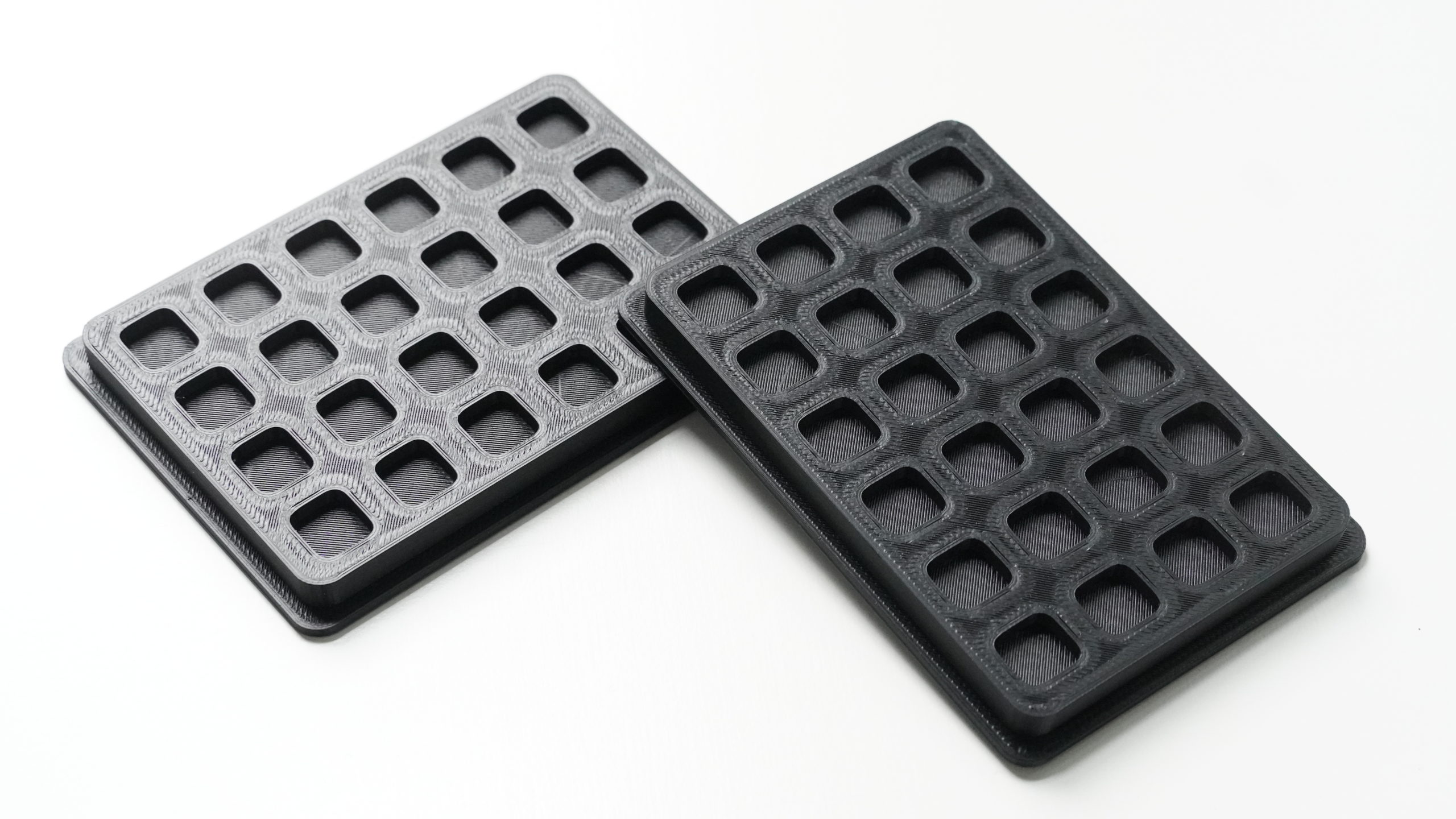Do you have any further questions?
Call us or send us an email:
- +49 (0)9401 5399470
- info@3dbavaria.com

Max. building space:
400 x 300 x 400 mm
Tolerances:
+/- 0,5 mm
Costs:
€ € €
Delivery time:
from 1 working day
This ABS-based material features thin, multi-walled carbon nanotubes to provide uniform conductivity. According to the manufacturer, a target area resistance of 107 up to 109 Ohm/sq can be achieved. At the same time, the material provides high stability in case of impacts and strains. The filament's property profile makes it ideal for critical applications that require a high level of protection against electrostatic discharge.
Look and feel:
With the FDM process, the individual print layers (usually 0.1-0.3 mm), or process paths of the print nozzle, are clearly visible on the parts. In addition, support structures are often necessary for printing, which must be removed afterwards and can have an impact on the surface quality.
Technical documents:
| Test | Value | Method |
|---|---|---|
| Tensile modulus | 2130 MPa | ISO 527 |
| Tensile strength | 58 MPa | ISO 527 |
| Tensile elongation | 4 % | ISO 527 |
| Flexural strength | 80 MPa | ISO 178 |
| Flexural modulus | 2276 | ISO 178 |
| Glass transition temperature | 105 °C | DSC |
| Surface resistance | >107 - 109 |
ASTM D257 |
The comparatively inexpensive but extremely flexible FDM process impresses with a huge selection of materials as well as large installation spaces ( with us, for example, up to 1,000 x 500 x 500 mm).
ABS is the most widely used plastic in the world. It is characterized by a high level of heat resistance and very good post-processing options.
The PLA, made from renewable raw materials, is characterized by its high tensile strength. It is particularly suitable for prototypes and bulky parts.
This plastic combines the best properties of ABS and PLA. It is tougher than ABS, more heat resistant than PLA, UV stable and resistant to many chemicals.
ASA is the ABS for outdoors. The property profile is similar, but ASA has a higher heat resistance and is more resistant to UV radiation.
Polycarbonate (PC) is an extremely tough material. It has high temperature resistance, making it ideal for technical enclosures, for example.
The carbon fiber-reinforced PA6/66 is highly resistant to external influences and particularly good for robust parts that have to meet higher mechanical requirements.
With an elongation of up to 480%, high chemical resistance as well as heat resistance up to 140°C, the material is suitable for industrial applications.
This material is a real alternative to conventional materials used for technical applications and is both food safe and compostable.